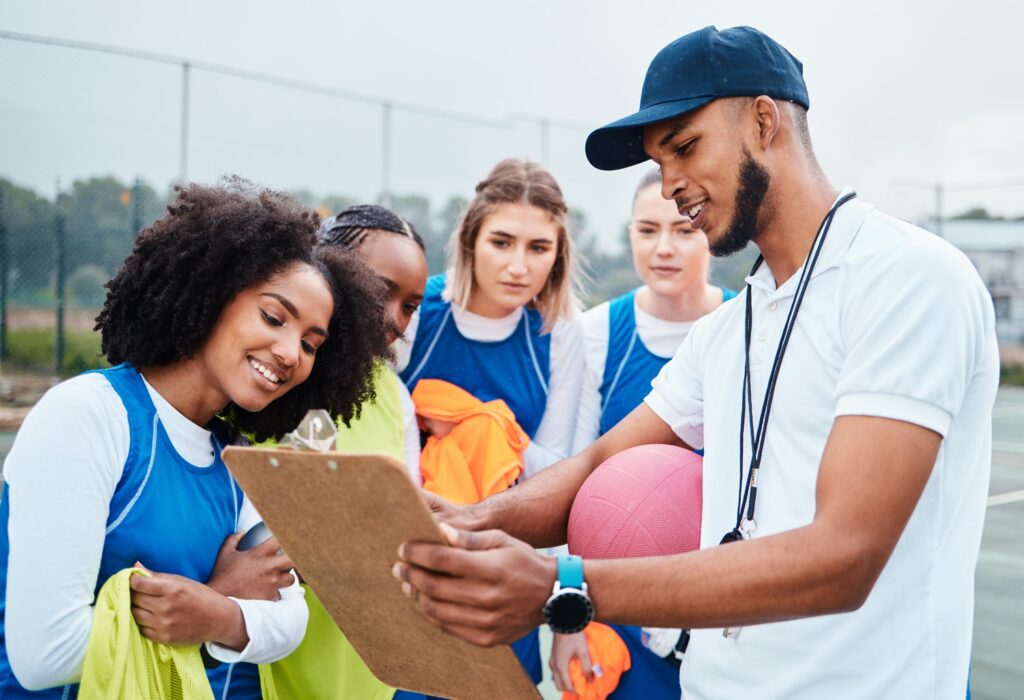Coaching is more than just teaching skills; it’s about creating an environment where every athlete feels valued, supported, and empowered to reach their full potential. True inclusivity goes beyond simply welcoming all athletes – it’s about actively creating opportunities for everyone to thrive.

Here are some key principles for inclusive coaching
1. Recognize and Address Barriers
- Physical limitations: Adapt drills and routines to accommodate athletes with physical disabilities.
- Learning styles: Offer diverse learning methods, such as visual aids, verbal instructions, and hands-on demonstrations.
- Socioeconomic barriers: Provide affordable training options and financial assistance when possible.
- Cultural differences: Be mindful of cultural norms and communication styles.
2. Promote a Culture of Respect and Acceptance:
- Zero tolerance for bullying or discrimination: Create a safe and inclusive environment where all athletes feel respected and valued.
- Celebrate diversity: Encourage athletes to appreciate and learn from each other’s backgrounds and experiences.
- Use inclusive language: Avoid making assumptions or using language that could be perceived as exclusionary.
3. Focus on Individual Growth and Progress
- Set individualized goals: Work with each athlete to set realistic and achievable goals that align with their unique abilities and aspirations.
- Provide personalized feedback: Offer constructive criticism and positive reinforcement tailored to each athlete’s needs.
- Celebrate individual achievements: Recognize and celebrate the unique accomplishments of every athlete, regardless of their skill level.
4. Empower Athletes to Be Leaders:
- Involve athletes in decision-making processes: Give athletes a voice in team decisions and allow them to take on leadership roles.
- Encourage peer support: Foster a culture of mentorship and peer support among athletes.
- Promote self-advocacy: Teach athletes to advocate for themselves and their needs.
Inclusive coaching is not just the right thing to do; it’s also good for the team. When every athlete feels valued and empowered, the team as a whole becomes stronger, more resilient, and more successful.
What are some of the most effective strategies you’ve used to create inclusive opportunities for your athletes? Share your experiences in the comments below!
Disclaimer: This blog post is for informational purposes only and should not be considered professional advice.
